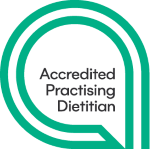General health and wellbeing for all ages.


Our services
We provide nutrition and dietetics services for all ages, including expecting mothers, babies, toddlers, children, teenagers, adolescents, adults, and senior citizens.
General health related nutrition
We can help you loose weight, gain weight and give you pointers to make your diet healthier by providing information on healthy eating, personalised diet plans and recipe ideas.
Disease related nutrition
We provide disease related dietetic advise on chronic disease conditions such as diabetes (Type 1 and Type 2), heart disease, high cholesterol and high blood pressure; Gastrointestinal diseases, IBS, Crohn’s disease, allergies, intolerances, FODMAP diets, enteral and parenteral feeding.
Nutrition for aged care
We provide individual consultations on nutrition and dietetic services, prescribing oral nutrition supplements to assist with preventing and reversing malnutrition and chronic disease management for the residents in your aged care, respite care and palliation to meet their nutritional goals and improve their quality of life.
Corporate nutrition
We offer seminars, work place resources, cooking demonstrations and menu assessments suited for your work place to promote healthy work places.
If you need more information please contact our Dietitians and Nutritionists in Canberra.

